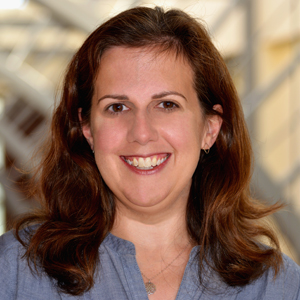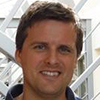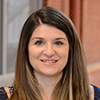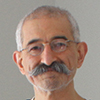Affiliated
Faculty
Click names to see the biography.


Post Doctoral
& Research
Scientists
Click names to see the biography.

Dr. Del Siegle serves as director of the Renzulli Center for Creativity, Gifted Education, and Talent Development. He holds the Lynn and Ray Neag Endowed Chair for Talent Development in the Neag School of Education at UConn, where he was honored as a teaching fellow. Prior to earning his Ph.D., Del worked as a gifted and talented coordinator in Montana. He is past president of the National Association of Gifted Children and has served on the board of directors of The Association for the Gifted. He is also past chair of the AERA Research on Giftedness, Creativity, and Talent SIG. He has been co-editor of the Journal of Advanced Academics and Gifted Child Quarterly. He writes a technology column for Gifted Child Today. Del’s research interests include web-based instruction, motivation of gifted students, and teacher bias in the identification of students for gifted programs. Along with Gary Davis and Sylvia Rimm, he is an author of the popular textbook, Education of the Gifted and Talented (6th and 7th ed.). He is the Director of the National Center for Research on Gifted Education (NCRGE), which replaces the former The National Research Center on the Gifted and Talented (NRC/GT).
Dr. Catherine A. Little is a Professor in Educational Psychology at the University of Connecticut. She earned her Ph.D. in Educational Policy, Planning, and Leadership with emphasis in Gifted Education Administration from The College of William and Mary in 2001. She is currently the Project Director for Project SPARK, which was funded by the Javits program in the 2014 competition, and Project LIFT, which was funded by the Javits program in the 2018 competition. In addition Dr. Little previously worked on several other Javits grants, including serving as curriculum coordinator for Project Phoenix (social studies project, awarded 1998) and as co-PI for the SEM-R in the Middle project (reading project, awarded 2008). She was also involved as a curriculum specialist in the early stages of Project Athena (language arts project, awarded 2003).
Dr. James C. Kaufman is a Professor of Educational Psychology at the Neag School of Education at the University of Connecticut. He has written or edited more than 50 books, including The Creativity Advantage (Cambridge, 2023), Lessons in Creativity from Musical Theatre Characters (Routledge, 2023; with award-winning composer Dana P. Rowe), and three editions of the Cambridge Handbook of Creativity (with Robert J. Sternberg). James has developed many theories, most notably the Four C’s (with Ron Beghetto). He has developed several self-report measures of creativity (most notably the Kaufman-Domains of Creativity Scale). James has won many awards, including Mensa’s research award, the Torrance Award from the National Association for Gifted Children, the World Council for Gifted and Talented Children’s International Creativity Award, and APA’s Berlyne, Arnheim, and Farnsworth awards. He co-founded two major journals, Psychology of Aesthetics, Creativity, and the Arts and Psychology of Popular Media Culture and is the current Senior Associate Editor for Creativity Research Journal. He has edited books on pseudoscience and animal cognition with his wife, Allison, tested Dr. Sanjay Gupta’s creativity on CNN, written a book on bad baseball pitchers with his father, and written a musical, Discovering Magenta, which premiered in NYC.
Dr. Betsy McCoach is co-Principal Investigator and Associate Director for the National Center for Research on Gifted Education. She has extensive experience in multilevel modeling, instrument design, and latent variable modeling. She is the founder and Program Chair of the annual Modern Modeling Methods conference. Dr. McCoach has co-authored over 100 peer-reviewed journal articles, book chapters, and books, including Instrument Design in the Affective Domain and Multilevel Modeling of Educational Data. She was editor of Gifted Child Quarterly (2012-2017). Dr. McCoach has served as co-Principal Investigator and research methodologist for several federally-funded IES and NSF projects. Dr. McCoach is a member of the IES Stats/Methods review panel.
Dr. Christopher Rhoads is a co-Principal Investigator for the National Center for Research on Gifted Education. He is currently an Associate Professor in the Department of Educational Psychology at the University of Connecticut. His research interests focus on methods for improving causal inference in educational research, particularly in the areas of experimental design and the analysis of multi-level data structures. Dr. Rhoads is now, or has been in the past, a member of research teams conducting evaluation, development and efficacy grants in the areas of educational technology, math education, gifted education, community college persistence rates, and housing and child welfare. These projects have been funded by the National Science Foundation, the Institute of Education Sciences and the Federal Administration for Children and Families. Dr. Rhoads also serves on the advisory boards for several IES and NSF funded projects. He is a regular presenter at the IES funded Summer Research Training Institute for Cluster Randomized Trials. He has published articles in Journal of Educational and Behavioral Statistics, Journal of Research on Educational Effectiveness, and British Journal of Mathematical and Statistical Psychology and is acknowledged as an outstanding peer reviewer for two scholarly journals.
Dr. Joseph S. Renzulli (Emeritus) is a leader and pioneer in gifted education and applying the pedagogy of gifted education teaching strategies to all students. The American Psychological Association named him among the 25 most influential psychologists in the world. He received the Harold W. McGraw, Jr. Award for Innovation in Education, considered by many to be “the Nobel” for educators, and was a consultant to the White House Task Force on Education of the Gifted and Talented. His work on the Three Ring Conception of Giftedness, the Enrichment Triad Model and curriculum compacting and differentiation were pioneering efforts in the 1970s, and he has contributed hundreds of books, book chapters, articles, and monographs to the professional literature, many of which have been translated to other languages. Dr. has received more than $50 million in research grants and several million dollars of additional funding for professional development and service projects.
Dr. Renzulli established UConn’s annual Confratute Program with fellow Educational Psychology Professor Sally Reis. This summer institute on enrichment-based differentiated teaching has served more than 35,000 teachers from around the world since 1978. Dr. Renzulli also established the UConn Mentor Connection, a summer program that enables high-potential high school students to work side by side with leading scientists, historians, and artists and other leading edge university researchers. He is also the founder along with Dr. Reis of the Joseph S. Renzulli Gifted and Talented Academy in Hartford, Connecticut which has become a model for local and national urban school reform for high potential/low income students.
His most recent work is an online personalized learning program that provides profiles of each student’s academic strengths, interests, learning styles, and preferred modes of expression. This unique program also has a search engine that matches multiply coded resources with student profiles. Teachers also use the program to select and infuse high engagement enrichment activities into any and all standardized curriculum topics.
Dr. Sally M. Reis (Emeritus) is the co-Principal Investigator and co-Project Director of the Project 2e-ASD: Strategies for Gifted Students with ASD. She is an Endowed and Board of Trustees Professor in Educational Psychology at the University of Connecticut. She oversees the project, coordinating all activities in support of the project objectives and supervising the project team. She previously worked on several other Javits grants, including serving as a principal investigator for the SEM-R and the SEM-R in the Middle Grades Project (reading project, awarded 2008). She holds the Letitia Neag Morgan Chair in the Neag School of Education where she also served as Principal Investigator of The National Research Center on the Gifted and Talented (1990-2013). She has authored and co-authored more than 250 articles, books, book chapters, and monographs and technical reports. She is a past President of the National Association for Gifted Children and received the Distinguished Scholar and Service Award from that organization.
Dr. E. Jean Gubbins (Emeritus) is a Professor in the Department of Educational Psychology at the University of Connecticut. Through grant funding from the United States Department of Education for The National Research Center on the Gifted and Talented (1990–2013), Dr. Gubbins implemented quantitative and qualitative research studies in culturally, linguistically, and economically diverse communities focusing on the curricular strategies and practices in science, technology, engineering and mathematics (STEM) high schools, reading and mathematics education in elementary schools, professional development, and gifted education pedagogy for all students. She is Co-Director of the Renzulli Center for Creativity, Gifted Education, and Talent Development and Associate Director and Co-Principal Investigator of the National Center for Research on Gifted Education. She is involved in implementing multi-year studies focusing on exemplary practices in identification and programming for gifted and talented students.
Dr. Gubbins is Principal Investigator of a grant funded by the Javits Gifted and Talented Students Education Program entitled Thinking Like Mathematicians: Challenging All Grade 3 Students. The team developed a unit on algebraic thinking, multiplication, and division for students in general education classrooms that will support and challenge their current and future mathematical understandings. Currently, the team is focusing on providing professional learning opportunities for research participants on how to develop pre-differentiated and enrichment curriculum on fractions for grade 3 students. In addition, she is Co-Principal Investigator for the Javits grant entitled Project BUMP UP Building Up Mathematics Proficiency Utilizing Push-in with students in grades 4–5.
Dr. Gubbins has conducted over 50 program evaluations for school and organizations around the country. Research, evaluation, and teaching interests stem from prior experiences as a classroom teacher, teacher of gifted and talented students, evaluation consultant, and professional developer. She teaches graduate courses in gifted education and talent development related to identification, programming, curriculum development, and program evaluation.
Stephanie Huntington joined the Renzulli Center as a Program Assistant in 2019. Prior to joining the Renzulli Center team she graduated from the University of Connecticut in 2006 with a degree in psychology. She earned her teaching certificate in elementary education from Southern Connecticut State University and taught 6th grade for many years. Stephanie currently works on a variety of projects including Confratute and other Center events.
Lisa M. Muller is the Executive Program Director for the Renzulli Center for Creativity, Gifted Education, and Talent Development. Lisa earned a Master’s degree in forensic psychology, and she has worked at the University of Connecticut since completing her undergraduate degree there. She joined the team at the Renzulli Center in 1999. Lisa is responsible for a wide range of duties within the Renzulli Center and associated projects, including grant projects, outreach activities, and office management. Lisa also holds the primary responsibility for implementing a grant program from the Jack Kent Cooke Foundation focused on a summer residential learning experience for talented high school students from across the country.
Siamak Vahidi is an Administrative Program Support staff for the Renzulli Center. He has been working for the Center since 1993.
Anthony Gambino is a Postdoctoral Research Associate with the National Center for Research on Gifted Education at the University of Connecticut. He earned his M.A. and Ph.D. in Educational Psychology (Research Methods, Measurement, and Evaluation program) at UConn. His areas of expertise/research include causal inference, research and evaluation methodology, multilevel and structural equation modeling, and measurement theory.
Dr. Kelly Kearney is a Research Associate with Project LIFT. Dr. Kearney completed her Ph.D. in Educational Psychology with emphasis in Gifted and Talented Education at the University of Connecticut in 2014. Dr. Kearney’s background includes working with teachers and students in school-based and out-of-school programs, and her research has included focus on resilience in advanced learners from underserved populations. She was a Research Associate with Project SPARK, coordinating the efforts of multiple schools in project implementation, facilitating PD and data collection efforts, and supporting dissemination and writing. Dr. Kearney will coordinate project management and implementation for Project LIFT, including recruiting and communicating with school personnel, supervising graduate assistants, and reporting project progress and findings.
Dr. Susan Dulong Langley is a Research Associate at the University of Connecticut and Co-Principal Investigator for Javits Project EAGLE. She is a former teacher of the gifted in Massachusetts. She served as president of the Massachusetts Association for Gifted Education, and as the parent representative and governance secretary for the National Association for Gifted Children. Susan’s research interests include identification, services, and program retention for culturally and linguistically diverse gifted learners.
John Burrell is a third-year doctoral student at the Renzulli Center for Creativity, Giftedness, and Talent Development at the University of Connecticut. He takes a mixed methods approach to his research. John currently serves as a research assistant on Project EAGLE, a $2.9 million project developing a dynamic approach to equitably identify gifted English Learners (ELs). John’s research interests include executive functions and study skills, mathematical education, self and identity, and conceptions of giftedness and talent development. In line with his belief that research and teaching are mutually reinforcing endeavors, John serves on the faculty of the Andover Summer Program at Phillips Academy in Andover, Massachusetts. John has nine years of experience teaching middle school and high math, science, and study skills.
Casey Hogan is a second-year doctoral student at University of Connecticuts’ Renzulli Center for Giftedness, Creativity, and Talent Development. Before coming to UConn, Casey was a teacher and instructional coach in New York City for fifteen years. She received her B.A. from Duke University in psychology and Spanish and holds a master’s degree in psychology in education from Teachers College and a master’s in teaching from Empire State College. Casey is currently working with her advisor, Dr. Catherine Little, on the Javits’ funded Project Focus investigating high-quality discourse and teacher self-efficacy. Her research interests include reading curriculum and instruction, urban education, supporting advanced learners in mixed-ability classrooms, and giftedness in underserved populations.
Shannon McDonald is a doctoral candidate, course instructor, and graduate assistant researcher for Project Focus (PI: Dr. Catherine Little). She holds a Master of Arts in Teaching in Gifted Education and Equitable Instruction, a two-year post-baccalaureate certificate in secondary education, and a B.A. in English Literature. As former middle and high school English language arts teacher, Shannon taught in Washington State classrooms designed to support the needs of students with advanced abilities. Her research interests focus on talent development, with particular attention to psychosocial development and family support.
Hima Raveendran is a graduate student in the Research Methods, Measurement, and Evaluation (RMME) program at the University of Connecticut. She currently works as a research graduate assistant on Project Focus under the guidance of her advisor, Dr. Kylie Anglin. She holds a Bachelor of Science (B.Sc.) in Physics, a baccalaureate degree in Education, and a Master’s degree in Physics. Her academic background is complemented by her professional experience as a secondary school physics educator, where she developed a deep interest in teaching methodologies and educational measurements. Her research interests include text analytics, science education, and the evaluation of classroom strategies.
Shuyu Wang is a second-year Giftedness, Creativity, and Talent Development Program doctoral student. She received her M.A. from Hainan Normal University in Curriculum and Instruction and her M.S. from Missouri State University in Educational Technology. She had one and a half years of work experience in ICT-supported instructional design and teacher training programs. Her research focuses on human creativity in fanfiction and the collaborative creative between human and generative artificial intelligence.
Jimmy Wilson is a 3rd year doctoral student in Educational Psychology at UConn’s Renzulli Center for Creativity, Talent Development and Gifted Education. Having taught in rural and urban Title 1 schools in Texas for the past decade, he brings a practitioner’s perspective to his research on creativity, equity, and neurodiversity. He holds an M.Ed. from Southern Methodist University and currently works with Dr. Catherine Little on the Javits-funded Project Focus investigating high quality discourse. He is also a fellow for the NSF TRANSCEND educational neuroscience PhD training program. Jimmy serves on the e-board for the University of Connecticut’s education journal and as an emerging scholar in residence for the podcast Fueling Creativity in Education. At 6’8″ he’s easy to spot at conferences and always willing to chat about research, graduate student advocacy, or his adorable daughter, Remi June.
Mei Zheng is a fifth-year doctoral student in the Giftedness, Creativity, and Talent Development program. She received her M.A. from Pace University in General Psychology. She is a research assistant for the National Center for Research on Gifted Education. Her research focuses on people’s beliefs about creativity and motivation, including laypersons’ beliefs about creativity, the links between creativity and meaning, and the role of motivation in creative engagement as a source of meaning.























